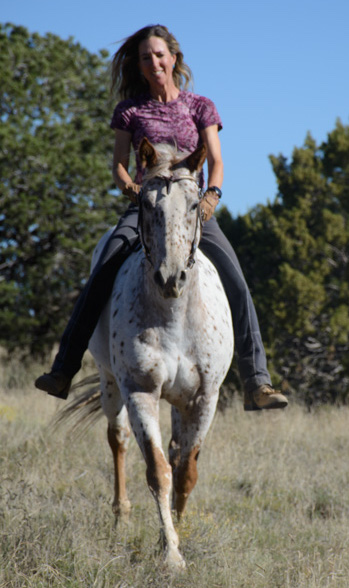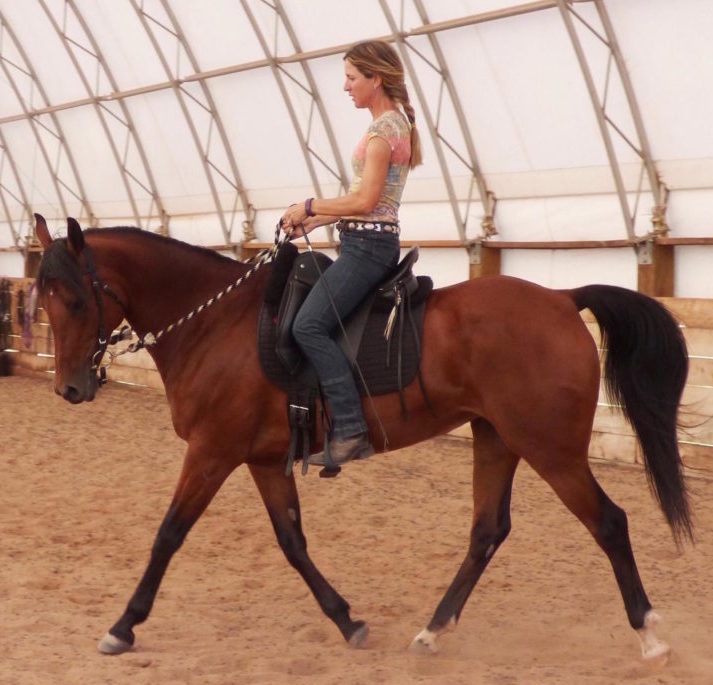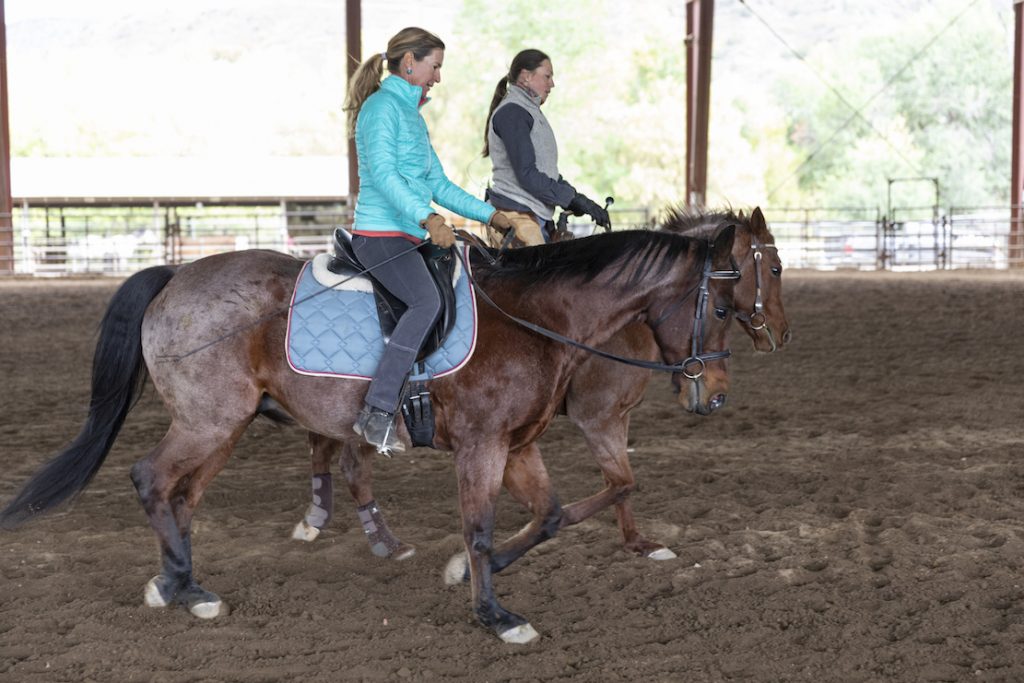
Katrin Silva
Editor’s Note: 2018 & 2019 Best Horse Practices Summit presenter Katrin Silva grew up riding dressage in Germany before moving to the United States at age 19 to learn to ride Western. She’s been riding both disciplines for the last twenty years and is a regular columnist for Cayuse Communications, with a new book “Dressage for the Rest of Us.”
She lives in New Mexico where she works with dressage and Western clients. Visit her blog here.
Katrin Silva writes:
In pursuit of good horsemanship, some don’t make earning their horse’s respect a priority because they equate respect with fear. But there should be no confusion. The two mindsets are opposites of each other: a horse who fears you cannot respect you.
While both fear and respect produce an obedient horse, only respect-based obedience creates a horse who works with joy and expression. Intimidated horses do what their rider tells them to do because they fear what might happen if they don’t. It works, but only until the horse faces something he fears more than his rider. In scary situations, a horse trained through fear will take off or shut down.

Katrin Silva
Respect-based obedience goes deeper. A horse who respects his rider will look to her for reassurance that everything is ok before he runs away from the scary plastic bag or the terrifying judge’s stand. In dicey situations, he will check in with her. He will listen to what his rider says, not because doing anything else would be painful, but because it seems like a good idea. These horses trust their riders. They know their riders would not ask them for anything painful or anything they’re not ready for. They know their riders will forgive misunderstandings and mistakes.
How do horses learn to respect a rider?
No, making a horse run backwards won’t get you there.
No, using a certain type of whip, or carrot stick, or flag, or other gadget won’t get you there, either.
No, you can’t buy respect through feeding treats.
No, your horse won’t respect you because he’s grateful to you for adopting or rescuing him.

Katrin Silva and Amy Skinner
There are no shortcuts. Respect is earned. If you want your horse to respect you, you will have to become a rider who deserves respect—a calm and consistent rider. A rider who treats her horse fairly at all times.
Respect is a mutual skill: horses respect riders who respect them. We see how a horse respects his rider. But how does a rider show respect to her horse?
The word “respect” comes from the Latin verb respicere, which means “to look again, to look often, to look back at.” I think of respect as telling a horse, “I see you.”
This means:
- I see you.
I don’t look at you through the narrow lens of my own agenda, my competitive ambitions, my need to prove how tough I am, my desire to come across as an expert rider.
Nor do I look at you through the romance of rose-colored glasses. You’re a horse, not a unicorn. I don’t look at you through the distorting kaleidoscope of my own ego. I see you as the magnificent animal you are. You are not here to fulfill my expectations. You owe me nothing.
- I see you.
You are a powerful creature. If so inclined, you could get rid of my presence on your back any time you choose. Most of the time, you don’t. I am in awe of this state of affairs and am grateful for it.
- I see you.
When I am working with you, I don’t have eyes for much else. I am not distracted by other people or other things. Right now, no one is more important than you. I pay attention to you, a hundred percent, and I want you to pay attention to me.
- I see you.
You are a complete being, with opinions and quirks. You are not a robot. Your opinion matters. I may disagree with you. I may take steps to dissuade you. But first, I will allow you to express it. I don’t do this grudgingly. I do it because I want to know you, quirks and all.
- I see you.
I see your talents and your shortcomings. I see your training history and conformation. I see your character, its original parts and the human-made components (Sometimes, it’s hard to tell the difference). I see these things as I help you be the best possible version of yourself – fit, supple, and balanced. I want you to find joy in your work.
- Lastly, I see you as a beautiful, elegant being.
I feel honored to work with you. I hope to do right by you. Whether you are a rescued grade pony or a finely-bred sport horse, I see you as worthy of my time, worthy of my skills, worthy of by best training effort.
Respect goes both ways. Let’s do our part, so our horses have an easier time doing theirs.
Just lovely. Plain and simple. Thanks Katrin for these thoughts on mutual respect.
What a great article on the meaning of “respect.” A often misused and misunderstood tern with people and their horses. This description offers a better understanding. NO reason to shy away from the word when we can “see” what it actually means…This is what real regard for the horse looks and sounds like…beautifully written Katrin..thank-you!
I love this. Thank you for sharing it.